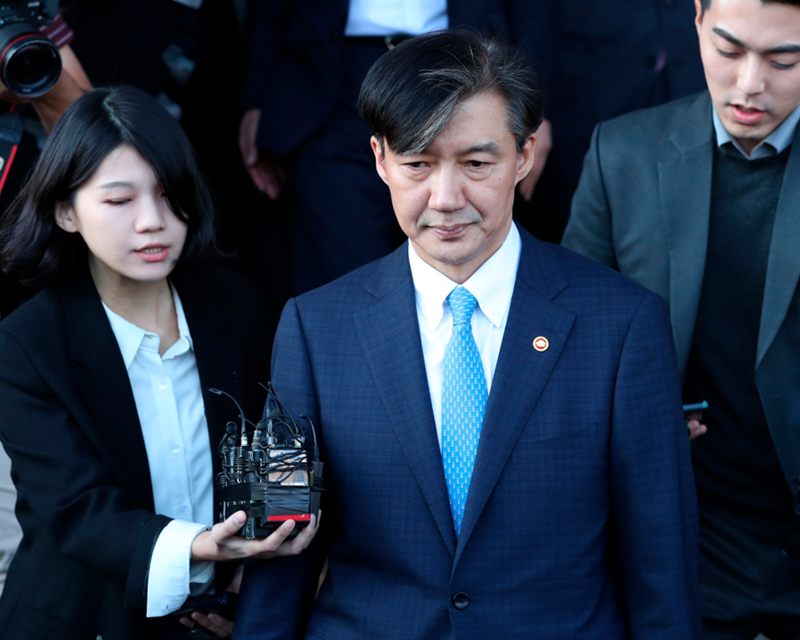Surrendering to the intense public pressure, South Korean justice minister Cho Kuk resigned from his office on Oct.14. While some with liberal perspectives supported Cho, others denounced him for abusing his power to gain personal benefits. One among the many wrongdoings for which Cho Kuk received criticism was granting his daughter unfair academic privileges in several ways, such as being involved in the act of forging a college award and falsely listing her as the first author of an academic paper.
“I was shocked and disappointed to hear that Cho Min, Cho Kuk’s daughter, gained multiple unfair advantages in her college admissions process,” said Christine Lee (12), an avid follower of the news. “To all other Korean students, it’s absolutely unreasonable that Cho Min got a scholarship to attend Medical School despite flunking twice in high school. Additionally, I feel that it’s ironic and unfitting for Cho Kuk to be guilty of committing such academic dishonesty when he should really be encouraging fairness as the justice minister.”
Aside from providing his daughter with academic privileges, Cho was also accused of investing millions of dollars into suspicious equity funds. After an investigation of the justice minister’s activities, it was revealed that he is the sole investor of his cousin’s private equity fund called Blue Core Value-Up 1, having invested a total of 1.4 billion dollars. Critics claim that by becoming the major shareholder of this family-owned business, the justice minister amassed wealth to give to his children without paying inheritance taxes, once again abusing his power to benefit his own family.
“When it was revealed that Cho Kuk was a part of financial scandals in addition to academic ones, I, along with the majority of the Korean population, was more disappointed than ever,” said Jaeho Hwang (12), MUN member. “The fact that he would disregard any moral values and invest billions of dollars in a family business simply to gain personal benefits shows the justice minister’s greed and justifies his resignation from office.”
Even though many showed disapproval toward Cho’s corrupt actions, some still showed continued support for the justice minister in the hopes that he would contribute to achieving the Moon administration’s promised reforms. For instance, many proponents encouraged the justice minister’s action of raising taxes on the wealthy to create more public sector jobs. Supporters also claimed that his wife, Jeong Kyung-sim, should be held accountable for committing multiple fraudulent allegations instead of Cho. Jeong was eventually arrested after it was revealed that she was the main offender of the academic and financial corruption scandals.
“I see how some people tend to support Cho Kuk, as he has aimed to benefit the lives of people in the working class through his public policies,” said Michael Silber, Asian Studies teacher. “However, this does not justify the justice minister’s severe corruption allegations, nor does it mean that he should not have resigned. Despite that he may have made some improvements during his time in office, it still remains true that his misdeeds significantly hurt the Moon Administration and disappointed the majority of citizens who once trusted him to make moral decisions as a leader.”

